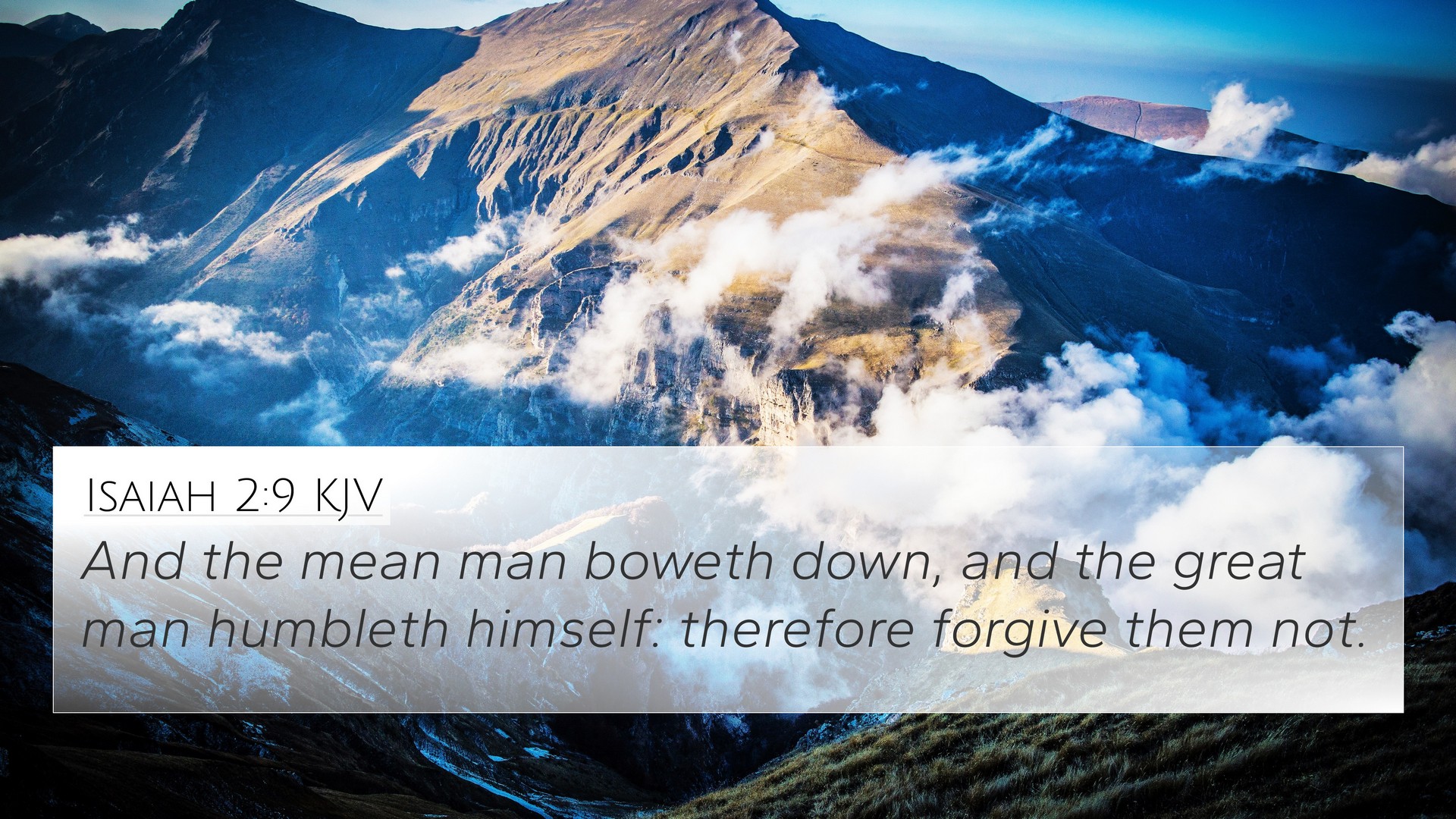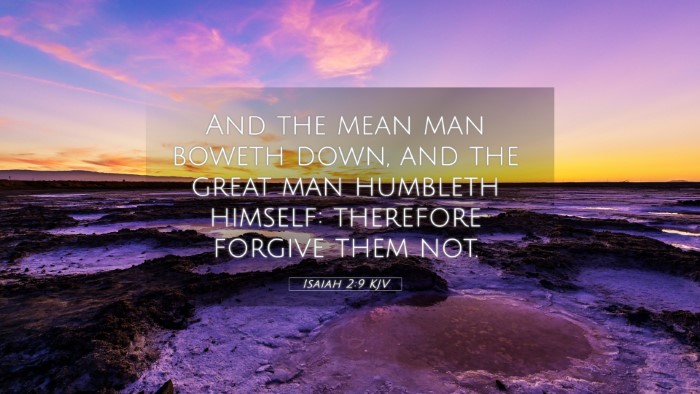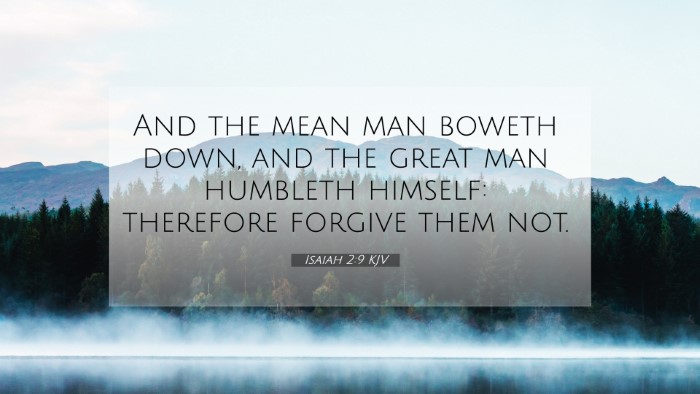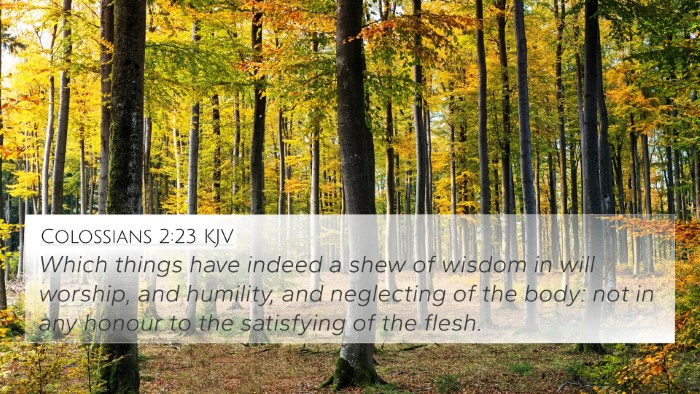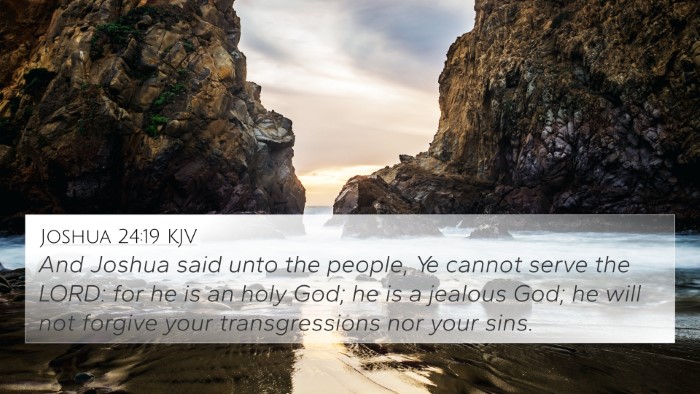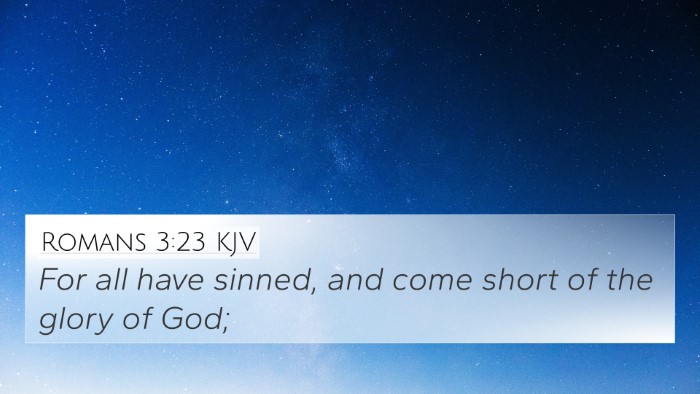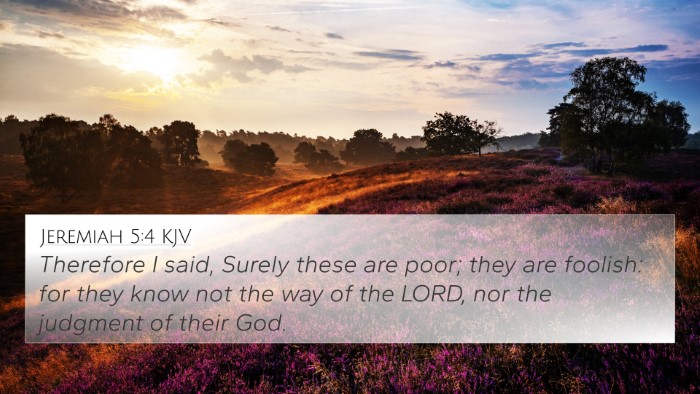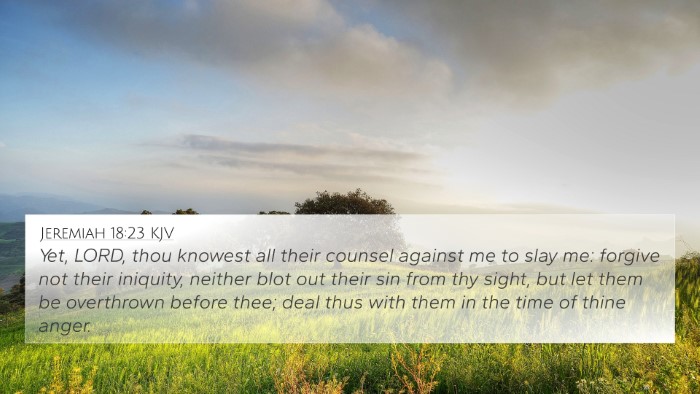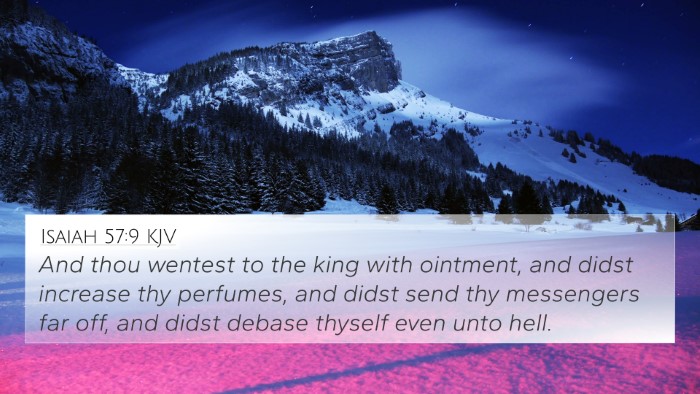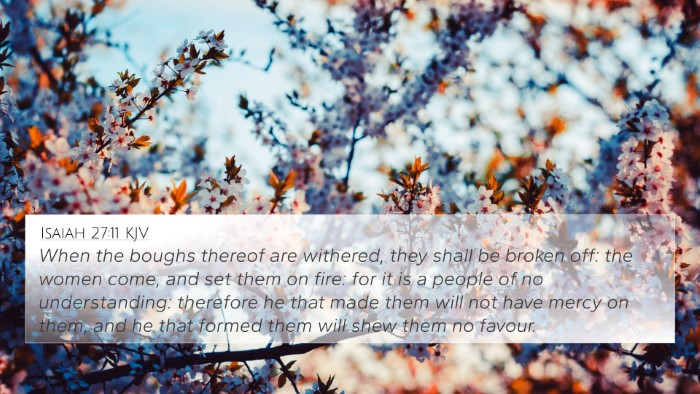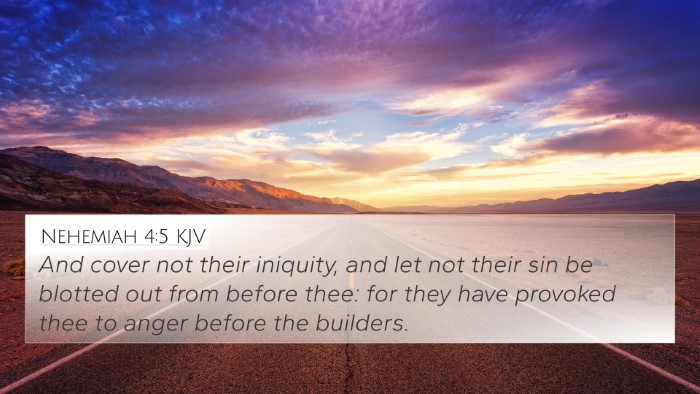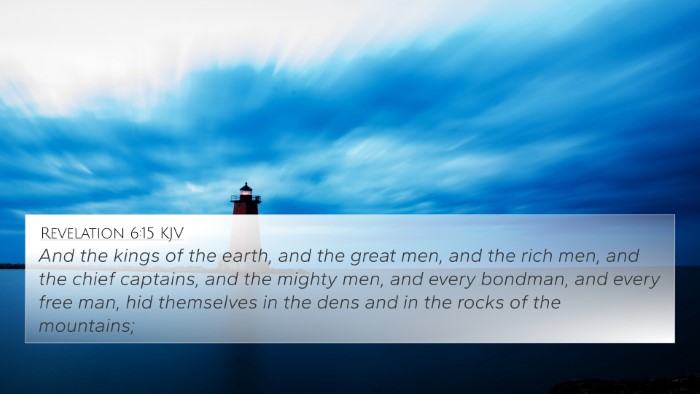Understanding Isaiah 2:9
Isaiah 2:9 states: "And man bows down, and each one humbles himself; therefore do not forgive them." This verse, situated within a broader prophetic context, reveals insights about human behavior, judgment, and divine responses. Commentaries from renowned biblical scholars such as Matthew Henry, Albert Barnes, and Adam Clarke illuminate various interpretations and thematic connections.
Contextual Analysis
In the preceding verses, Isaiah reflects on the lofty vision of the Lord's house being established, and the nations streaming to it (Isaiah 2:2-3). However, verse 9 contrasts this hopeful vision by highlighting the innate human tendency to bow down to idols and the consequences of true humility before God being disregarded.
Interpretative Insights from Commentaries
Matthew Henry's Commentary
Matthew Henry emphasizes the theme of judgment in this verse. He notes the futility of false humility displayed by people who bow to idols while neglecting true reverence for God. This self-degradation leads to God's unwillingness to forgive, as it indicates a heart not aligned with genuine repentance.
Albert Barnes' Commentary
Albert Barnes discusses the idea that this passage serves as a warning. He asserts that the act of bowing down can reflect a superficial acknowledgment of God, yet without a true spiritual transformation. He suggests that true humility comes from recognizing one's offense against God and requires more than mere outward signs of reverence.
Adam Clarke's Commentary
Adam Clarke elaborates on the concept of divine judgment following false humility. He indicates that Isaiah's declaration serves as a reminder that bowing implicitly demands sincerity; otherwise, it invites condemnation rather than forgiveness. Clarke implies that authentic humility involves a sincere seeking of God’s mercy, which is absent in this context.
Thematic Connections and Cross-References
The verse resonates with several themes found throughout Scripture, particularly concerning humility, idolatry, and the consequences of sin. Below are notable connections and cross-references to explore:
- Isaiah 57:15: Highlights God's attention to the humble and contrite in spirit.
- James 4:10: Calls for believers to humble themselves before the Lord to receive exaltation.
- Micah 6:8: Emphasizes doing justly, loving mercy, and walking humbly with God as core tenets of faith.
- Luke 18:14: The parable of the Pharisee and the tax collector illustrates true humility leading to justification.
- Psalm 51:17: Describes the sacrifices of God as a broken spirit and a contrite heart.
- Proverbs 3:34: States that God gives grace to the humble, contrasting it with the proud.
- 1 Peter 5:5: Instructs believers to be humble towards one another as God opposes the proud.
- Matthew 23:12: Affirms that whoever exalts themselves will be humbled, and whoever humbles themselves will be exalted.
- Ephesians 4:2: Encourages believers to be completely humble and gentle, keeping unity in the Spirit.
- Isaiah 66:2: God looks favorably upon the one who is humble and contrite of spirit.
Conclusion
Isaiah 2:9 serves as a stark reminder of the importance of genuine humility before God. The insights from Matthew Henry, Albert Barnes, and Adam Clarke, along with thematic connections and inter-Biblical dialogues, enhance our understanding of this verse. By exploring cross-references, readers can uncover deeper meanings and applications relevant to their spiritual journey.
Tools for Further Study
For those interested in deeper engagement with Scripture, several tools can aid in cross-referencing and thematic Bible study:
- Utilize a Bible concordance to find related verses.
- Employ a Bible cross-reference guide for easy navigation between scriptures.
- Explore cross-reference Bible study methods to contextualize themes.
- Discover Bible reference resources that provide comprehensive insights.
- Learn how to use Bible cross-references for deeper verse interpretations.
